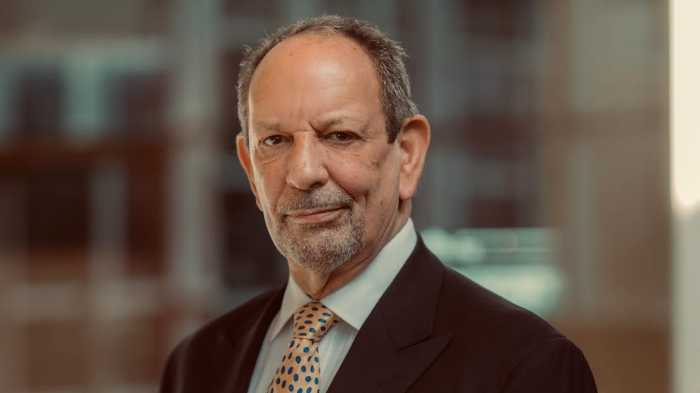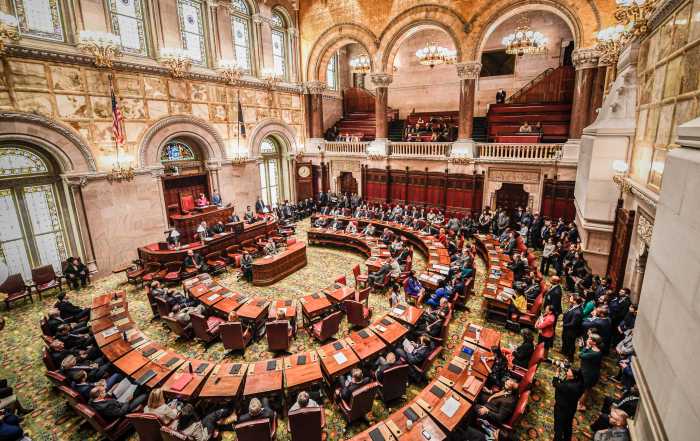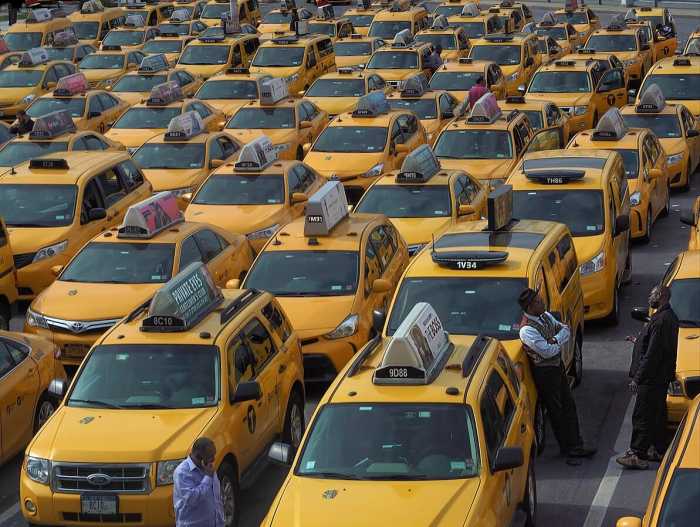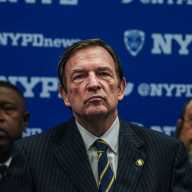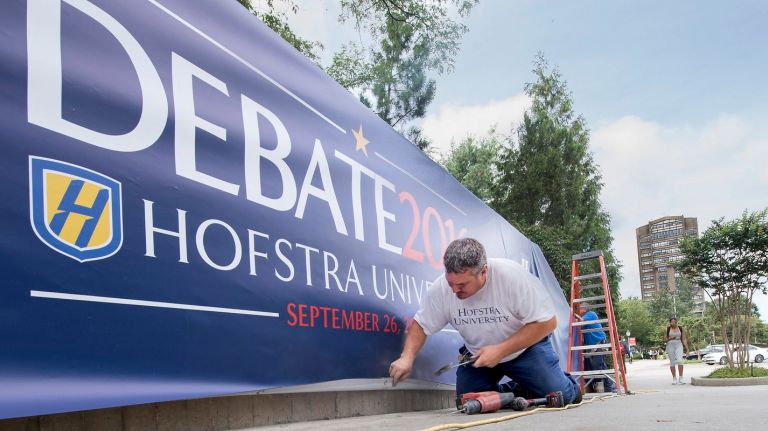
Shantel Walker has been working at Papa John’s for the better part of 16 years. It’s not a side gig or temporary — it’s how she earns her income. Some nights she makes over 200 pizzas, sometimes posting irregular hours: staying late, opening early. She makes $10.50 an hour.
That doesn’t feel like much for Walker, 34, who lives in Bed-Stuy. It feels like even less for co-workers of hers who have to support families or parents on top of paying their rent. (After a 40-hour workweek, Walker’s pay comes to $420 a week before taxes. Good luck finding more than a shared room.)
To push for higher wages and better treatment of workers generally, Walker became involved in the Fight for 15 movement whose strikes and actions, along with Sen. Bernie Sanders’ campaign, pushed some state and local governments to raise their minimum wages, including here in New York.
She is now one of the movement’s more prominent spokeswomen in NYC, and plans to protest outside tonight’s first presidential debate on Long Island, along with fellow fast-food workers. They hope to keep their cause in the public eye, and push the candidates to address their asks — $15-an-hour minimum wage and a union.
But given the way this mostly issue-less general election has gone, they won’t have much luck.
It’s been an issue-free campaign
It didn’t have to be this way. Pressure from Sanders’ run and renewed attention on income inequality pushed Hillary Clinton to evolve on the minimum wage. Now, she backs a $12-an-hour minimum wage nationally, with the potential to go higher state by state. Despite this not-quite-perfect agreement, she declared victory in NYC with Fight for 15 ralliers, along with Gov. Andrew Cuomo, another late adopter.
On the Republican side, disagreement about policies such as immigration reform led to the usual splits among candidates like Gov. Jeb Bush and Sens. Ted Cruz and Marco Rubio. But the air was snuffed out of such debates by the showmanship and nihilism of Donald Trump, who did not need to take any positions on, well, anything.
Trump has said wages are too high, also that they are too low. He’s supported going to a $15-an-hour minimum wage (though unspecified state or federal), later that he wouldn’t support an increase at all. Then just a little one.
He has been for and against the war in Iraq, H-1B visas, and higher taxes, to name a few.
Flip-flopping is not particularly new in American politics, and Clinton of course is no stranger to it. It serves a political purpose — you flop to earn the vote of someone who cares deeply about one or more issues. The weight of the voters’ decision becomes a description of what Americans think their president should do. Then it’s up to the newly elected president to either follow through on his or her promises or disappoint.
But there are many voters who do not seem to be supporting Trump out of allegiance to any particular issue or cause. Instead, some appreciate that Trump stands for a vague sense that America is on the wrong track and should be different.
When not required to hammer out, issue by issue, the way America should be different, he ends up trafficking in dangerous and bigoted generalities.
Not reforming border security systems to stop likely terrorists, but keeping out the Muslims because something “is going on.”
Not hashing out a way forward on crime and policing, but simply increasing “law and order.”
This is not even an election about the Second Amendment so much as it is about the “Second Amendment people” doing “something” about Clinton, as Trump said last month in what was widely viewed as a contemplation of the Democratic candidate’s assassination.
What will we hear tonight?
It’s easy to be overly righteous about “the issues.” To harken back to some halcyon day when politicians discussed “what mattered” for the country and citizens hemmed and hawed and weighed and measured and hammered it out.
That utopia never existed. But when candidates have at least some reliable, clearly articulated positions, elections can serve as roadmaps for the winner to follow once in office — guides for how Americans want to adjust course or carry on.
That road is charted by debates on the minimum wage, and immigration reform and trade policy.
We may hear questions on those topics Monday tonight, but it’s unlikely the answers will be particularly revealing. As he has before, Trump will probably rely on swagger and dark insinuation. Clinton will try to expose his actions as such, making the argument that Trump as president would be an unaccountable loose cannon.
By the end of this cycle that will have been the only issue we’ve discussed.




